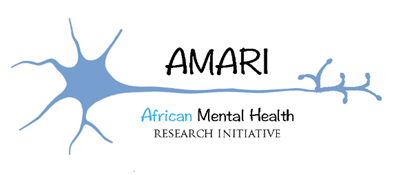COVID-19 and its impact on Substance abuse
By Clement Nhunzvi, AMARI PhD Fellow
The COVID-19 pandemic is having a profound disruptive impact on the lives, health and well-being of individuals, families and communities, a situation made worse by widespread poverty and other pre-existing socioeconomic and health challenges.
Parts of the management strategies to contain the spread of the corona virus including the lockdowns, quarantine and isolation measures have adverse psychosocial impacts on us. People are responding to these in different ways depending on their life circumstances. However, what is constant in all our responses is that our lives have been disrupted, and we need to adjust, unfortunately many do not have the mental and economic resources to cope in adaptive ways. This is worse for the already marginalized, educated, unemployed, frustrated ghetto youths.
Before COVID-19, we were already battling an upsurge in substance abuse among youths and young adults. Many were however hustling in the informal sector including commuter omnibus touting. The youths were at least active and productive. They had some engagement to organize their lives around. Because their lives were still stressful in a largely unsupportive environment, many saw substance abuse as a justified though maladaptive coping strategy.
Then came COVID-19. Resulting in disruption of already disrupted lives, it took away the little these youths had, their hustles. Voids in lives have been created with no meaningful options in sight now and even in the projected near future to fill in those. Maladaptive coping strategies thrive in these situations, hence drugging to pass time and relieve stress, is rising.
In these uncertain times, the youths with existing substance abuse problems and those at risk, are even more vulnerable. To make things worse, our national response plan has not been comprehensive to attend to the broader health and social care needs of the vulnerable, at least at implementation level.
The COVID-19 enforced life changes are leading to or worsening substance abuse. This further complicates the situation, as more health risks arise from substance abuse, including weakening of the immune system, hence putting stress of the body’s COVID-19 defence line, including the body’s cardiovascular and respiratory systems. Physiological cravings or symptoms of withdrawal may also induce some with substance abuse issues to leave their houses despite stay-at-home recommendations in order to access alcohol or drugs, which may also increase their exposure risk.
It is difficult to follow and adhere to COVID-19 prevention and treatment measures when intoxicated, putting many others at risk. In fact, substance abuse, be it alcohol, cocaine, opioids, tobacco, or marijuana, increase susceptibility to COVID-19 and its complications by multiple ways.
Those with substance use disorders in many instances, also have depression, anxiety, and other mental health challenges, worsening the situation. Turning to drugs may temporarily help you feel better, but the gradual changes in your brain will make things worse.
The ultimate solution to the substance abuse and COVID-19, would have been a comprehensive management plan in cooperating a sound rehabilitation program. It is imperative that those affected are assisted to seek alternative forms of engagement and spending their time, to alleviate the stress, boredom and bring back their productive and healthy lives. Substance abuse also thrives in secrecy, even more during these lockdown times, it is important to open and seek help early. Several remote and virtual services are available to assist you and your loved ones. Contact your health provider or book a session with the Friendship Bench.
There is no winning of the COVID-19 fight, without winning the mental health fight. We can pull through the pandemic without creating or exacerbating a substance abuse pandemic.

